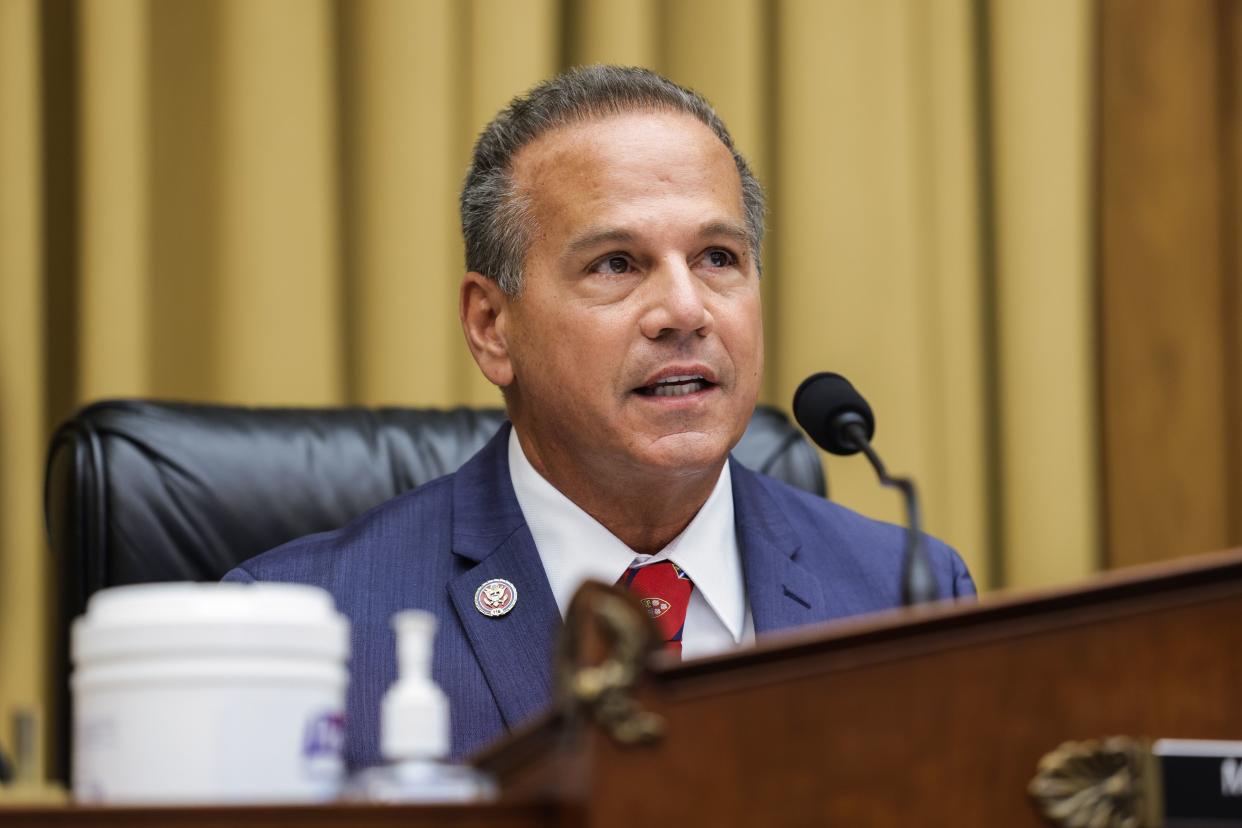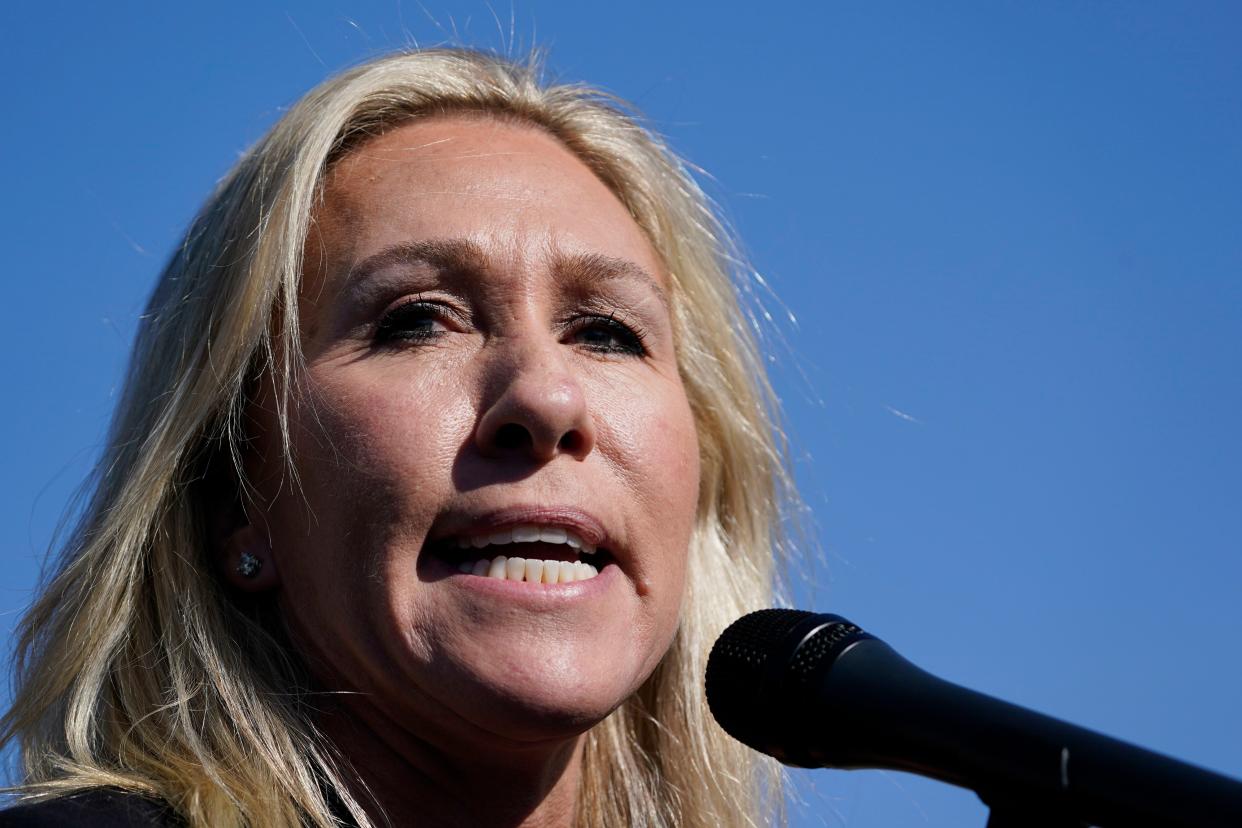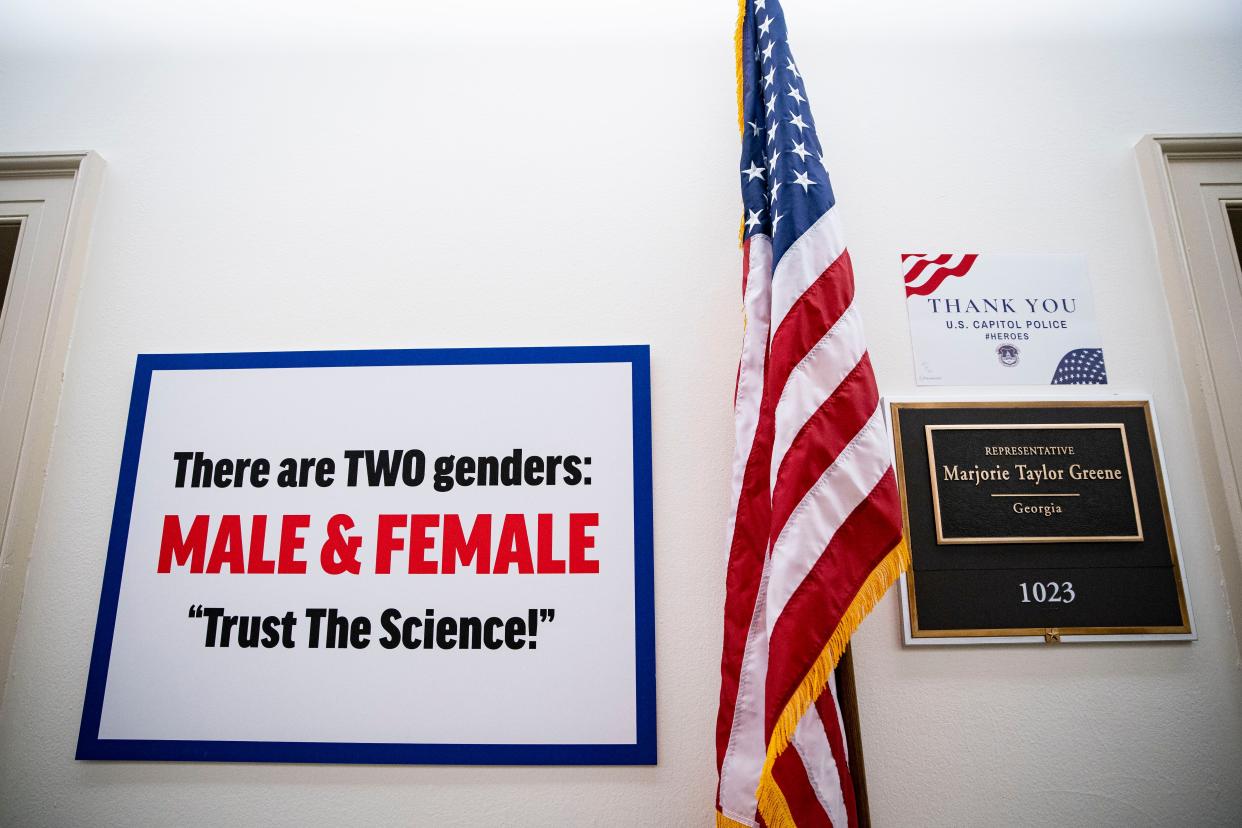House passes Equality Act to provide long-sought legal protections for LGBTQ+ people
The House approved a bill Thursday that would lock in long-sought legal safeguards for LGBTQ+ people — but the historic measure faces stiff odds in the Senate because of entrenched opposition among Republicans.
The “Equality Act,” which proposes to tweak existing civil rights law to spell out that sexual orientation and gender identification are protected characteristics that cannot form the basis for discrimination, passed the House in a 224-206 vote, with just three Republicans joining the chamber’s 221 Democrats in support.

The three Republicans who backed the landmark legislation were New York Reps. John Katko and Tom Reed and Pennsylvania Rep. Brian Fitzpatrick.
Proponents of the Equality Act say the new protections would ensure LGBTQ+ people can’t face discrimination based on their orientation or identity in employment, housing, loan applications, education and various other areas.
“The LGBT community has waited long enough,” Rep. David Cicilline (D-R.I.), who is gay and the bill’s lead sponsor, said in a floor debate before the vote. “The time has come to extend the blessings of liberty and equality to all of Americans regardless of who they are and who they love.”

The measure wouldn’t create a new law, but rather expand protections afforded by the Civil Rights Act of 1964.
But most Republicans claim it would erode religious liberties.
For example, they insist it could force faith-based adoption agencies to close down for requiring that a child be placed with a married mother and father, or pressure religious private schools to hire staff whose sexual orientation stands in opposition to their beliefs.
“The Equality Act is not about stopping discrimination. It’s about causing discrimination,” said Rep. Marjorie Taylor Greene, the controversial Georgia Republican who was stripped of all her committee assignments last month over her history of promoting political violence and far-right conspiracy theories.

The House passed the Equality Act in the last Congress, with backing from all Democrats and eight Republicans.
However, President Trump and the Republican-controlled Senate stringently opposed the bill at the time, rendering it dead on arrival.
This time around, Democrats control the Senate, and Majority Leader Chuck Schumer (D-N.Y.) has promised to put up the Equality Act for a vote.
However, it would need the support of at least 10 GOP senators to overcome procedural hurdles, and Republicans in the upper chamber appear to largely agree with Greene, muddying the bill’s prospects.
House Judiciary Committee Chairman Jerrold Nadler (D-N.Y.), whose panel drafted the Equality Act, slammed the GOP argument that it would inhibit religious freedoms.
“I have listened to this debate in amazement,” Nadler said. “This bill enshrines equality, it enshrines equality for everyone — that’s its purpose. It does not contradict the Religious Freedom Restoration Act, which I was the chief author of, but it does enshrine equality. And that’s what our friends on the other side of the aisle seem to be afraid of — equality.”

Reed, one of the three Republicans who broke the party line on the Equality Act, agreed with Nadler.
“The fundamental rights of the American people, such as religious freedoms, have been protected in the legislation as written,” said Reed, who represents an upstate district that includes Ithaca. “We will continue to support these efforts to ensure unlawful persecution or discrimination is prevented.”
Though Senate prospects for the Equality Act remain up in the air, the Supreme Court gave the LGBT+ community a major victory when it ruled 6-3 last year that the Civil Rights Act protects people from workplace discrimination based on gender.
But Democrats and LGBTQ+ activists say that’s not enough and argue the Equality Act would extend the same protections in areas like housing and public services.
Many states, including New York, already enforce Equality Act-like protections on a local level. But Republican-controlled states largely do not have the same protections in place.

Laying bare how personal the Equality Act is for some of its supporters, Rep. Marie Newman (D-Ill.), whose daughter is transgender, posted a video on Twitter Thursday morning placing a transgender flag outside her office, which is across the hall from Greene’s.
“Our neighbor, @RepMTG, tried to block the Equality Act because she believes prohibiting discrimination against trans Americans is ‘disgusting, immoral, and evil.’ Thought we’d put up our Transgender flag so she can look at it every time she opens her door,” Newman tweeted.
Greene responded by a posting a video of her own, in which she put up a sign outside her office reading, “There are Two genders: MALE and FEMALE. Trust The Science!”
House Speaker Nancy Pelosi (D-Calif.) expressed disbelief at Greene’s actions.
“It breaks my heart,” Pelosi told reporters. “We had a sad event here even this morning, demonstrating the need for us to have respect, not even just respect, but take pride, take pride in our LGBT community.”
With Michael McAuliff
